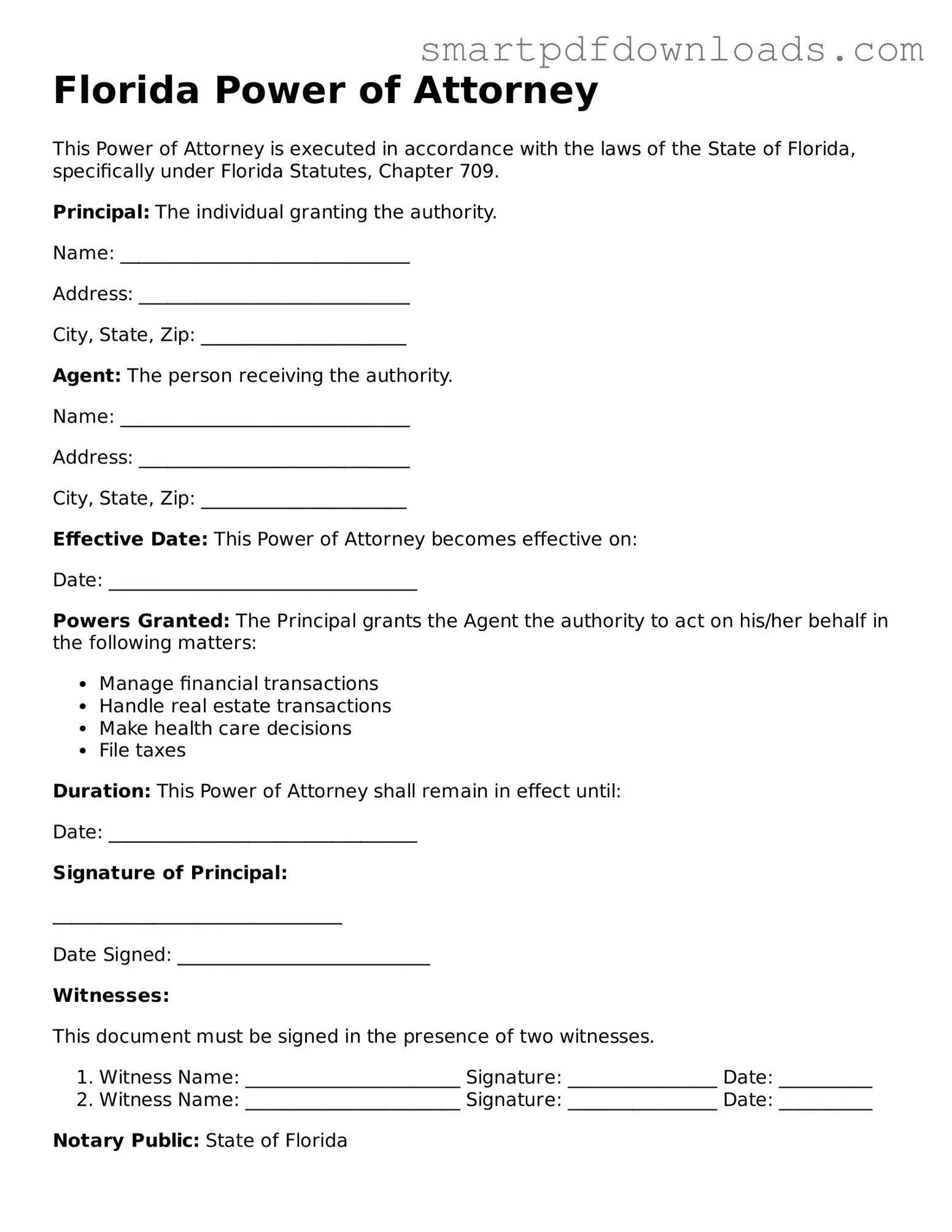Legal Power of Attorney Form for the State of Florida
A Florida Power of Attorney form is a legal document that allows an individual, known as the principal, to appoint someone else, called the agent, to act on their behalf in financial or legal matters. This arrangement enables the agent to make decisions and take actions as specified in the document. Understanding how to properly create and utilize this form is essential for ensuring that your wishes are honored when you are unable to manage your affairs.
Edit Power of Attorney Online

Legal Power of Attorney Form for the State of Florida
Edit Power of Attorney Online

Edit Power of Attorney Online
or
⇓ PDF File
Finish the form and move on
Edit Power of Attorney online fast, without printing.